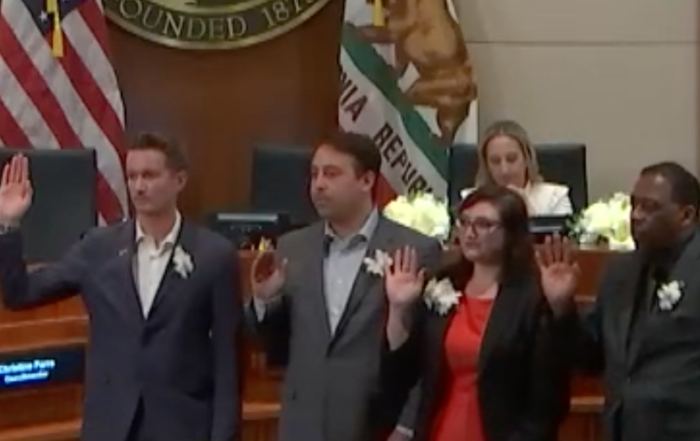Culver City’s workforce might be seeing higher wages in the near future if an economic study deems it necessary and feasible. The city council discussed whether to move forward with such a study on Monday night.
In July, the Culver City Council authorized staff to issue a Request for Proposals (RFP) to conduct an economic impact study of a potential Minimum Wage Ordinance (MWO). Proposals by outside parties were due on August 25. The city received one qualified proposal, from Berkeley Economic Advising & Research (BEAR), whose team they interviewed in September.
The July meeting also found agreement among council members that a discussion of a MWO like the one in the City of Los Angeles be brought forward.
The City of L.A.’s MWO was passed on June 1, 2016, after three separate economic impact studies had been conducted. It established a phased wage that was phased to climb a little each year to reach $15 per hour by 2020. As of July of this year, the L.A. minimum wage stood at $16.78 per hour for all employees who qualified.
The L.A. MWO had several other provisions as well, including:
- Established the L.A. Office of Wage Standards to oversee and enforce the MWO
- Set various deferral rates for small businesses and nonprofits meeting certain conditions
- Created fine amounts to charge businesses found in noncompliance
- Established 48 hours of sick leave for any employee working at least 30 days in a year
- Required economic data including jobs, earnings, and sales tax to be collected
The question before the council was whether to have staff prepare an MWO similar to the City of L.A.’s, or perhaps with different provisions, or whether to engage with BEAR to conduct a study specific to Culver City and/or to study L.A.’s MWO and results so far.
Jesse Nunez with the Culver City Chamber of Commerce voiced his organization’s support for engaging BEAR for both the study of a MWO for Culver City, which would require an allocation of up to $145,000 and also one to study the results of the L.A. Ordinance.
“Do we really need a study?” asked resident Ronald Ostrin, who called into the meeting. He pointed out that given Culver City is surrounded by the economic ecosystem of Los Angeles, Culver City would have to develop a MWO just to be able to compete with other area businesses paying higher wages.
Karim Sahli, another caller, agreed with Ostrin but would be against any ordinance that defers any amounts below the stated wage for workers under 18, which L.A.’s does in some cases. He said that amounts to “the exploitation of kids.”
Citing increasing wage inequality and the rising cost of living, Councilmember Freddy Puza said, “Adjusting the minimum wage is just one of the many ways to try to help people achieve more stability for their lives and families.” Puza said he favors moving forward by engaging with BEAR to conduct a study but hopes it can move forward quickly so Culver City can remain competitive with wages. “I learned this weekend some restaurants are losing servers to cities outside of Culver City because they can’t keep up with the wages,” he added.
Councilmember Göran Eriksson expressed concern over the administrative costs of setting up the local equivalent of L.A.’s Office of Wage Standards to manage Culver City’s MWO.
Assistant City Manager Onyx Jones responded to Eriksson by saying it would require new employees with a specialty to administer a program like this. But she says discovering how much that would cost would be one of the things a study would explore.
There are other options, though, she said. “We could contract with other regulatory agencies to assist us with the regulatory piece, but that would be a decision that council would have to make.”
“I think it’s important to do a study; I think it’s important to know what’s before us,” concluded Councilmember Dan O’Brien.” But, in a nod to business, O’Brien said, “We need a study to know what the impact is on those that are paying the minimum wage and whether or not they can bear it.” He said he favored a study plus the supplemental report pertaining specifically to L.A.’s MWO.
Vice Mayor Yasmine-Imani McMorrin cited a March study by UC Berkeley on small businesses that said, quoted by McMorrin, “A minimum wage doesn’t kill jobs. It kills job vacancies.” She said there are other studies, some Nobel prize-winning, that dispel the myth that higher wages mean fewer jobs.
“I think we should vote tonight to tie our minimum wage to Los Angeles,” said McMorrin. “I know we can meet this extra $1.10 to put us on par with Los Angeles County.”
“I think we all agree we need to raise the minimum wage,” said Mayor Albert Vera. “Let’s all agree it’s the right thing to do, absolutely, but let’s make sure – you know, I’d rather get it right than be right.” He added, “We need to examine it. You know, there’s a lot of moving parts.” He also claimed that the West Hollywood Chamber told him that their city had a 20-25 percent layoff when it spiked its minimum wage.
Ultimately, McMorrin moved for the staff to return with a MWO based on the renderings of L.A.’s Ordinance. That effort failed, 2-2, with she and Puza voting in favor, and Eriksson abstaining.
However, the council did vote, 3-0-2, to hire BEAR and have them conduct the study, with McMorrin and Eriksson abstaining.
The council then voted on whether to appropriate funds for the supplemental effort regarding BEAR studying the results of the L.A. Ordinance, an additional $37,000. But also with the same 3-0-2 vote, all voting the same way, the item failed. Unlike the initial study, the supplemental effort required a 4/5 vote threshold.
Photo image by Seiya Tabuchi
Stay informed. Sign up for The Westside Voice Newsletter
By clicking submit, you agree to share your email address with Westside Voice. We do not sell or share your information with anyone.








